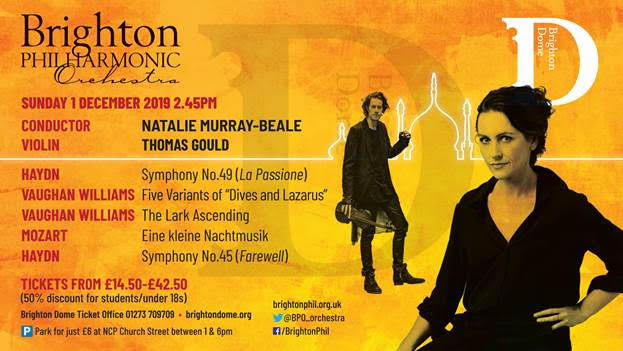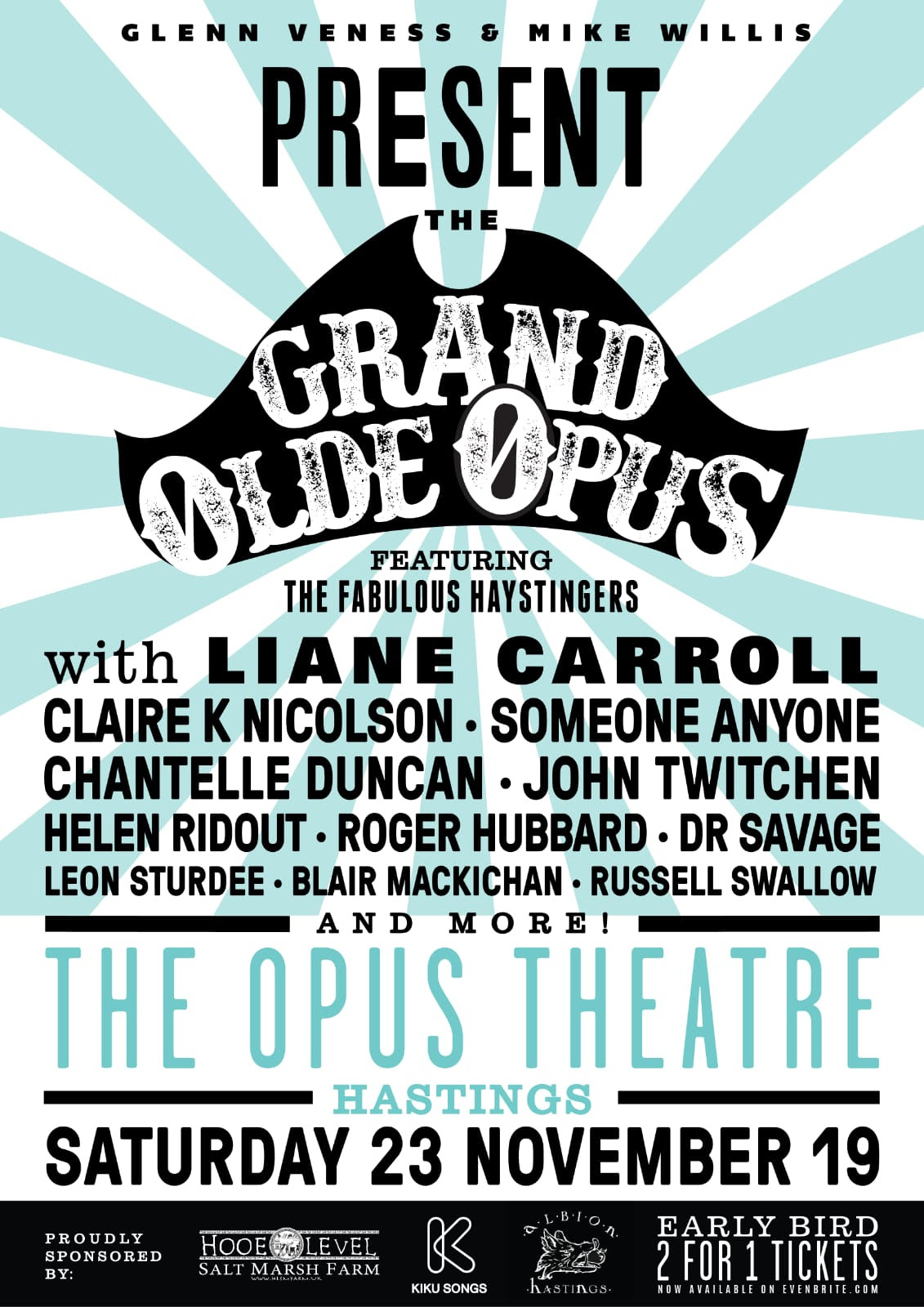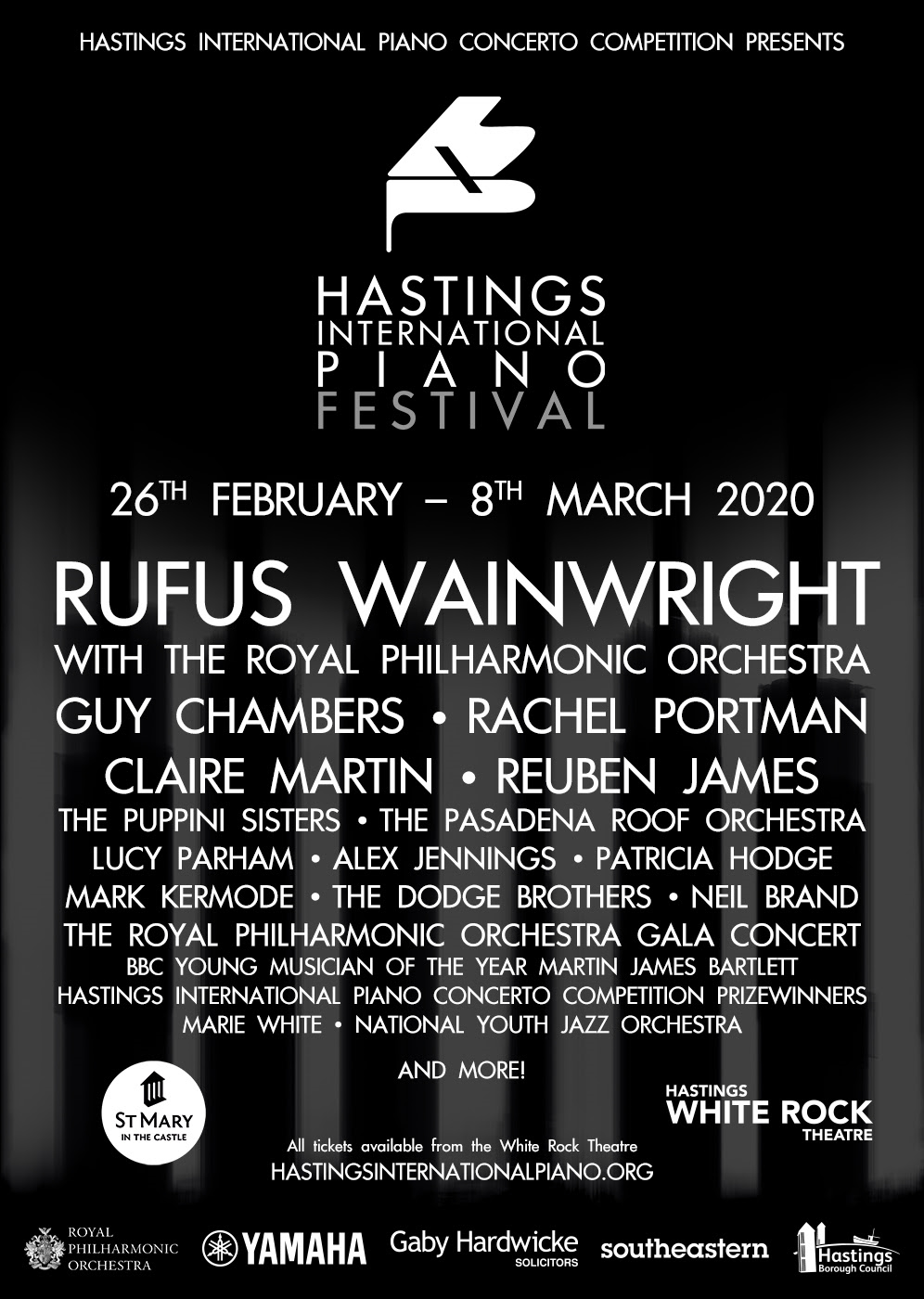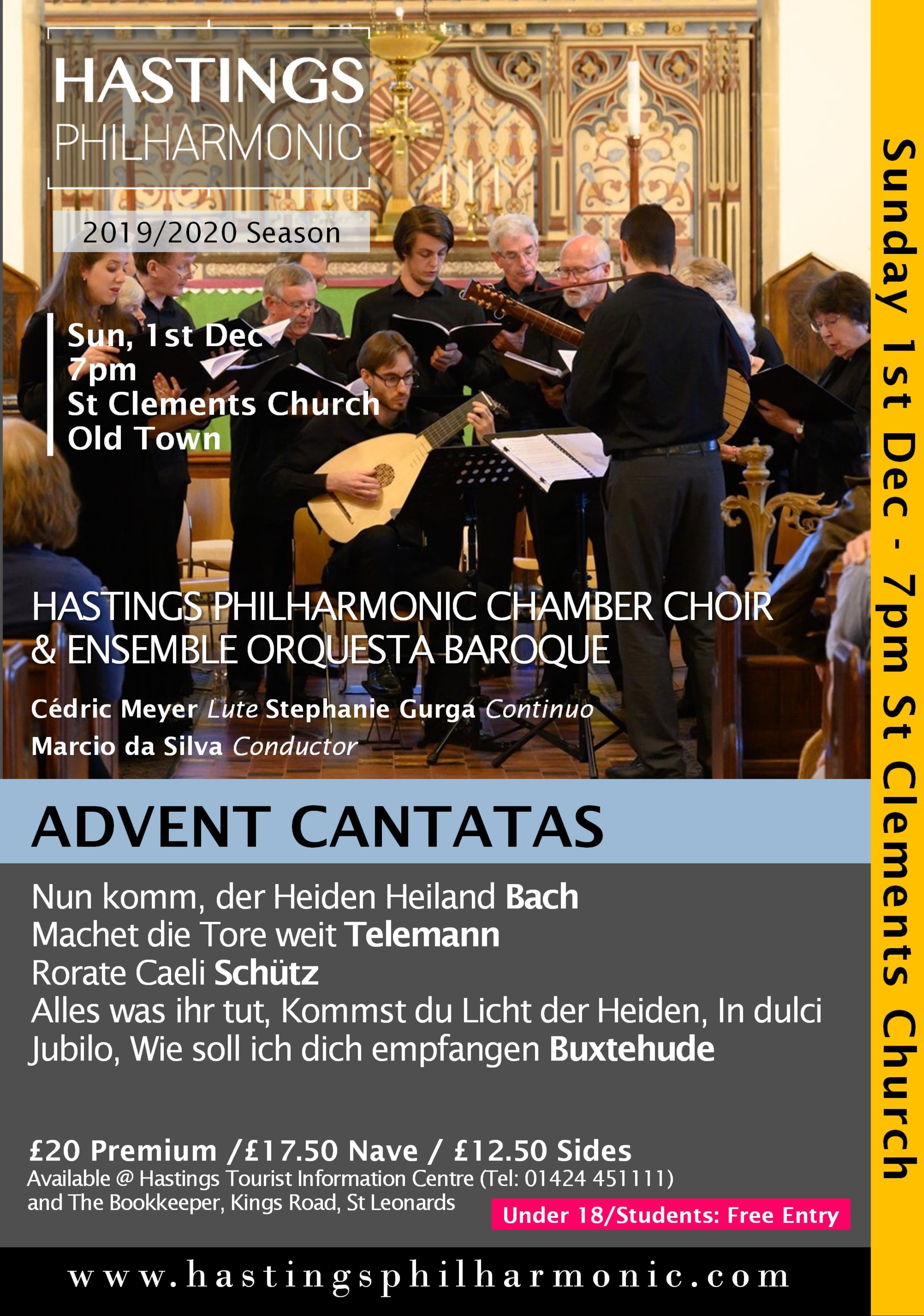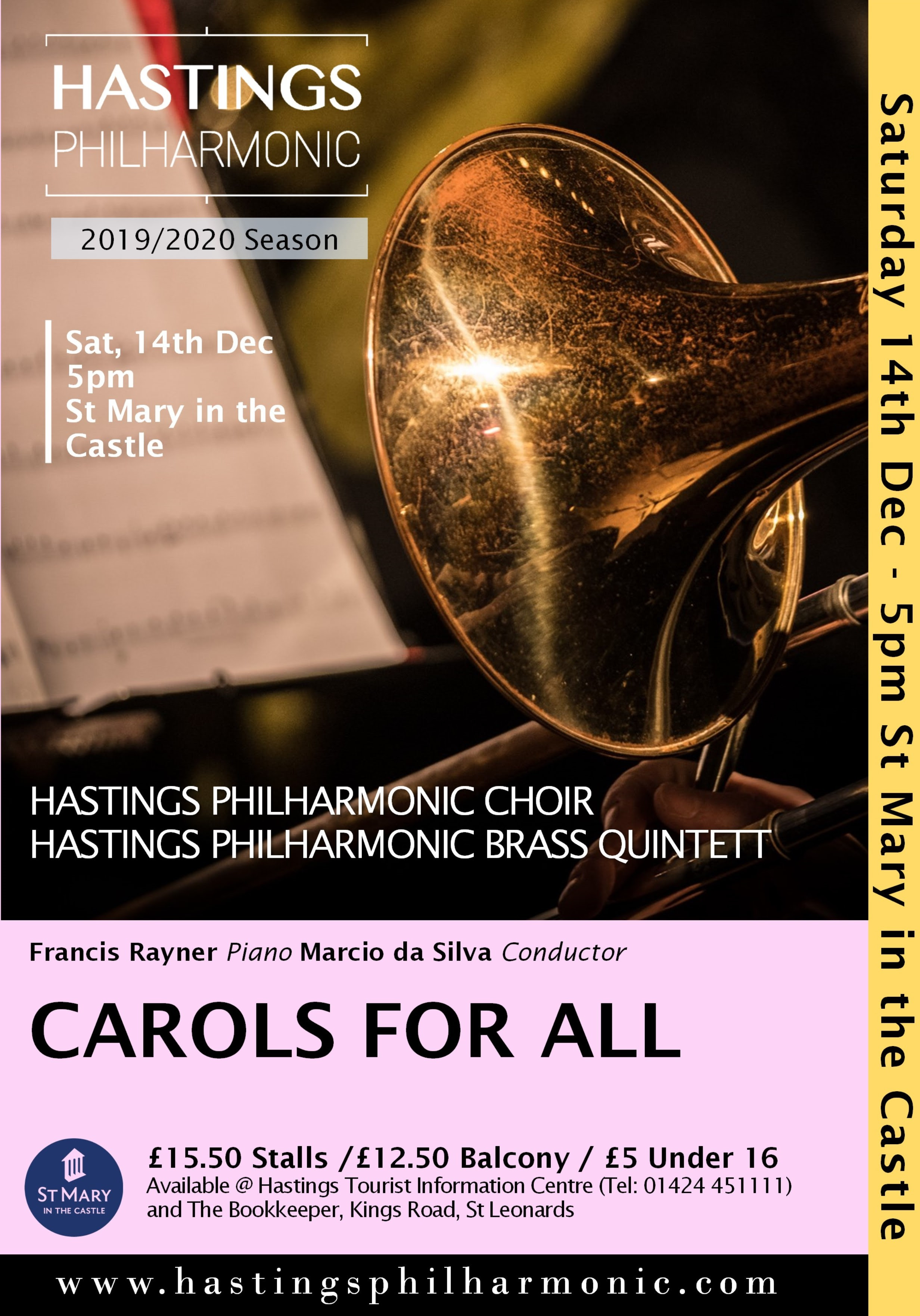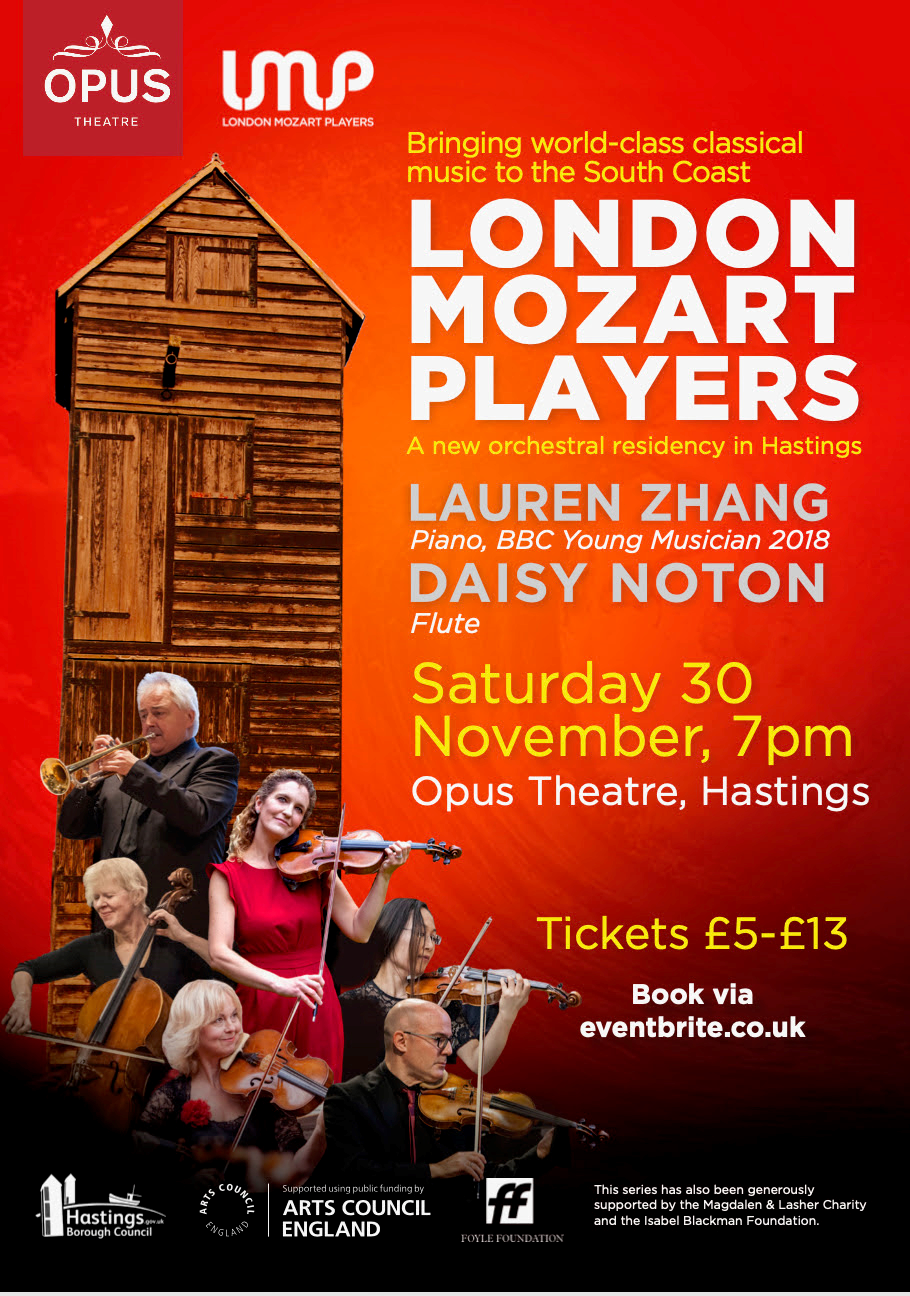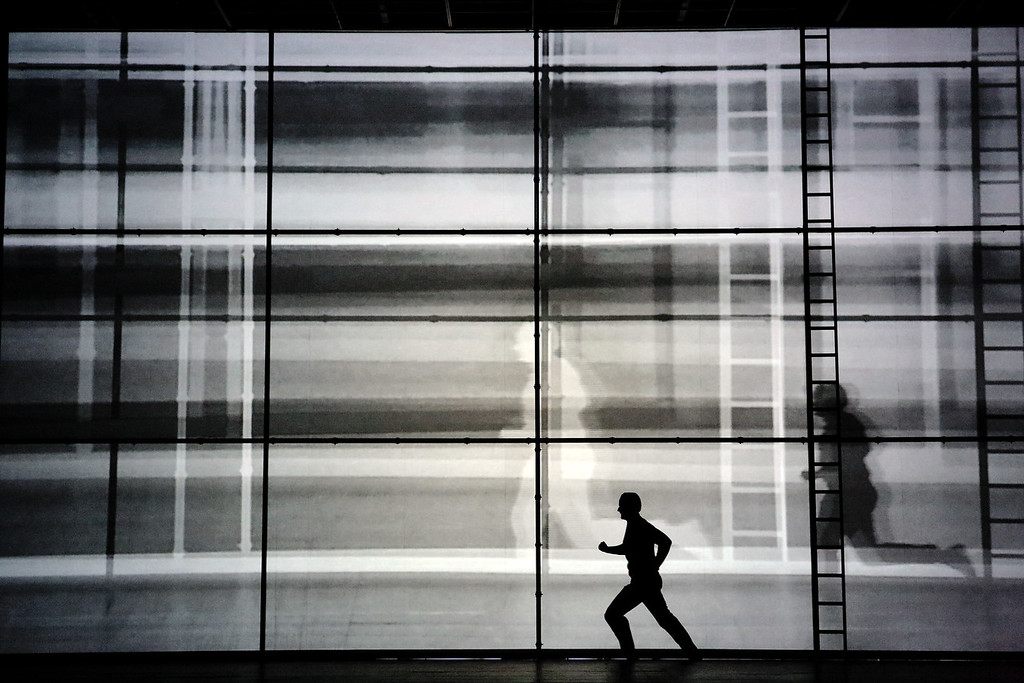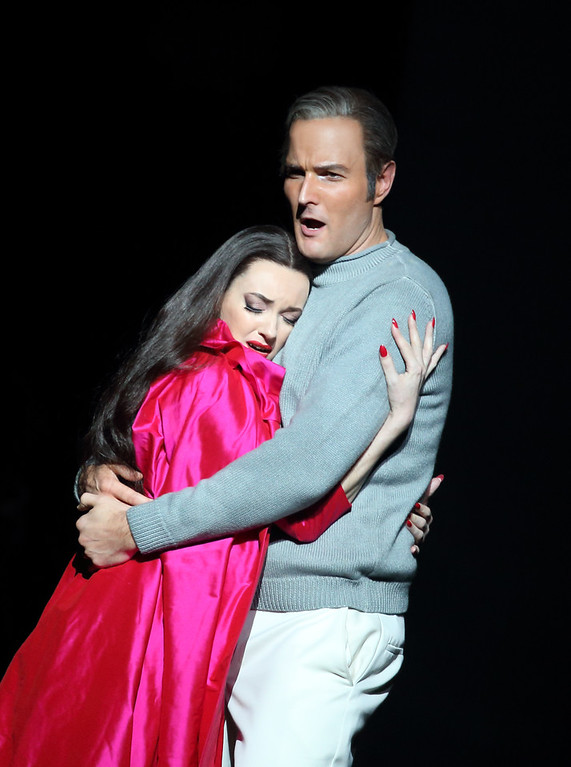Monthly Archives: November 2019
Brighton Philharmonic Orchestra
A cornucopia of classics from the Brighton Phil
Sunday 1 December, 2.45pm, Brighton Dome
Our second concert of the season takes place on Sunday 1 December with a beautiful programme of Vaughan Williams and Mozart, framed by two of Haydn’s deepest and most sonorous symphonies, La Passione and the Farewell Symphony.
We are delighted to welcome the Australian born conductor Natalie Murray-Beale to Brighton. Natalie, a BBC Performing Arts Fellow in 2015, was selected by Dallas Opera for their inaugural Institute for Women Conductors and is currently Creative Director of Independent Opera at Sadler’s Wells.
She says: “I am so looking forward to performing with the Brighton Philharmonic at Brighton’s beautiful Dome. A great highlight is being joined by the wonderful soloist, violinist Tom Gould. He plays with such soul and creates the sweetest sound. This will be very special.
The Lark Ascending evokes something much deeper than simple, lyric bird song. Full of improvised calling, memory, nostalgia and a deep sentiment that is hard to express in words, it could be depicting human longing, the earth or a feeling of soaring high about the world. Like so many masterpieces, it will resonate uniquely with each person who hears it.
There is a beautiful line from the Meredith poem that inspired The Lark: ´Extends the world at wings and dome’. How perfect to be performing it here at Brighton Dome.”
Thomas Gould writes: “I am delighted to be making my debut with the Brighton Philharmonic Orchestra with a piece very close to my heart, Vaughan Williams’s masterful requiem to an age of pre-war innocence, The Lark Ascending.” His 2015 recording of the piece garnered rave reviews – such as this from Gramophone Magazine “Gould soars aloft with effortless grace, tenderness and fragrant poetry.” Thomas has an unusually broad repertoire that includes many contemporary works and in addition to his many international solo appearances he is leader of the Britten Sinfonia, one of the world’s most celebrated un-conducted ensembles. The title of Five Variants of “Dives and Lazarus” may not be familiar, but the music probably will be; this gem for strings and harp is based on folk tunes collected by Vaughan Williams in East Sussex, with glorious string writing in its sweeping melodies.
Another Classic FM favourite is Mozart’s Eine kleine Nachtmusik, the German title meaning “a little serenade”, often rendered more literally, but less accurately, as “a little night music”. Written whilst Mozart was composing his opera Don Giovanni, this string serenade was actually not published until well after Mozart’s death.
The concert closes with Haydn’s Farewell Symphony, perhaps best-known because of the circumstances of its composition. Court composer Haydn, under pressure from his orchestra, was slyly appealing to their employer, Prince Nikolaus Esterházy, to allow the court musicians to return home to their families after a particularly long season at his remote summer palace. In the final movement the players left the stage one by one, snuffing out their candles, until only two violins and the conductor remained. History records that the Prince took the hint and the court were allowed to return home the next day!
Tickets £14.50-£42.50 (50% student/U18 discount) available from Brighton Dome Ticket Office, (01273) 709709, www.brightondome.org
Discounted parking (just £6 between 1 & 6pm) available at NCP Church Street car park.
Creating Carmen
St George’s Church, Kemp Town, Brighton
One of those shows which you can’t pigeonhole neatly, Clare Norburn’s thoughtful, intelligent Creating Carmen is part play, part concert and part discursive essay. And it makes for a pretty riveting evening.
Bizet’s famous 1875 masterpiece was based on a novella by Prosper Merimee published thirty years earlier. Norburn presents the author (Robin Soans) in his study neurotically trying to retain control of his creation, a sexily exotic gypsy named Carmen (in the form of Suzanne Ahmet) as she taunts, haunts, cajoles and controls him. He is variously rueful, irascible, annoyed and troubled because the book is not going as he wants it to. We are led to reflect on the process of a writer’s art and to ask who is creating whom. The wittiest moment – in a piece which is full of cleverness and ingenuity – comes near the end when Merimee has decided she must die and stabs her. It doesn’t work and when she moves we see that he has been trying to stab her in the back with his pen.
The underlying dramatic irony is that the play assumes that everyone in the room knows about Bizet’s opera but, of course, Merimee doesn’t. His creation tells him it will happen but he refuses to believe her. “Someone beginning with B” she tells him at one point. “Not that dreadful friend of Delacroix, Berlioz?” he replies. In the end she mentions Bizet but tells Merimee not to worry about it because at the moment the composer is still only a child of seven.
And then of course there’s the music which is, effectively, the leading character in the drama. The piece, which is touring, was commissioned by CarmenCo, a trio consisting of husband and wife Emily Andrews (flute and mezzo soprano) guitarist Francesco Correa with guitarist David Massey. The quality of the playing – which ranges from Carmen itself to arrangements of de Falla, Roderigo, Ravel, Roderigo and more is exquisite. Massey’s solo work is show-stopping and I loved the arrangement for two guitars and flute of de Falla’s La Vida Breve.
Emily Andrews sings several Carmen numbers in role as the musical Carmen of the future. Clearly a multi-talented performer, as well as being a fine flautist she has a rich mezzo voice and a great deal of dramatic presence – along with a rare gift of blankness when she is simply sitting aside the action holding her flute. She’s no slouch on castanets either.
All the music is played off-book so there’s an unusual sense of cohesion as these three players communicate continuously with each other with eyes and bodies. The result is a delightfully warm, intimate sound.
Directed by Nicholas Renton and lit by Natalie Roland this interesting production sat neatly in front of the altar in the
Georgian elegance of St George’s Church, Kemp Town in Brighton. The chancel step provided a quasi-natural raised area and the use of candles felt absolutely right. That and the warm acoustic made the music as atmospheric – a Frenchman dreaming of Spain – as it could possibly be.
Susan Elkin
Menotti: Amahl and the Night Visitors
St Thomas, Winchelsea, 23 November 2019
Menotti’s miniature gem Amahl and the Night Visitors was a regular favourite forty years ago but has surprisingly slipped from favour in more recent Christmases. This is strange given its immense appeal even if that leans towards the sentimental. The score is immediate, accessible and has a post-Puccini tunefulness which is engaging throughout. It also moves the story forward in the most naturalistic way. Opera South East’s semi-staged approach worked convincingly as the score lets the story unfold very precisely – we hear Amahl hopping across to the door and back with great clarity – while at the same time the points of emotional tension were well shaped and carried through. Have you seen a child is a case in point where we see the tension of the kings’ vision set against the realities of grinding poverty.
Julia Bovee was a sympathetic mother, frustrated by her son’s constant lies, until confronted with a truth stranger than fiction. Daisy Wardle was outstanding as Amahl, the clarity and innocence of the voice combined with a real sense of personality. Gary Marriott, Arthur Coomber and Oscar Smith gave the kings individuality as well as gravity – well all except Kaspar’s rather over-enthusiastic outbursts – and John Rycroft brought strength to the small but vital part of the page.
The chorus and dance sections are essential to the work so it was good to have a small but enthusiastic choral group and Maya Godlonton-White performing the shepherd’s dance with easy elegance.
The work does not really make for an evening’s entertainment so we were treated to some pre-Christmas delights even if it is not yet quite Advent. The choir were joined by the Fipple Consort who brought us recorder ensemble arrangements of Gaudete and Purcell’s Rondo from Abdelazer, Gary Marriott sang O Holy Night, Daisy Wardle We’re walking in the air and the evening ended with Ken Roberts on sax and three popular 1950s Christmas favourites. Ken had worked overtime throughout the evening as he led from the piano while conducting with his usual panache.
Next up from OSE is The Mikado in April.
Opus Theatre
La Belle Helene
Congress Theatre, Eastbourne, 17 November 2019
A Sunday matinee of La Belle Helene should be a delightful and engaging way of spending the afternoon. That it was not entirely so was as much a problem with the work itself as with Jeff Clarke’s updating. The recent revival of Orpheus in the Underworld for ENO suffered the same problems – and these have not been true of revivals of G&S, many of which are finding new and younger audiences who revel in Gilbert’s gentle undermining of English pomposity.
Offenbach horrified his original audience by sending up the Greek myth and thus upsetting the intellectuals who placed so much store on antique values. Offenbach shows the heroes of the Trojan War for a shifty lot with dubious morals and a great deal of narcissism. This comes over well in Jeff Clarke’s version but does not quite hang together with the umbrella setting of rival tour parties and a vaguely ancient archaeological site. Some updated references hit the mark but the inclusion of trans-gender jokes and a song about Viagra seemed ill-placed.
We are never quite sure where we are, or in what period. All we can do is go along with the singing as it progresses. Luckily much of this is excellent with Hannah Pedley a strongly focussed Helen, a fine foil for Anthony Flaum’s slippery Paris. Paul Featherstone and Charles Johnson are little more than caricatures as the two kings, though Robert Gildon bluffs his way through resourcefully as Calchas. Given the contemporary references elsewhere, there was considerable scope here for anti-clerical jokes but they were not in evidence. Of the small roles Jennifer Clarke was outstanding as Bacchis. The chorus sang well but often seemed ill at ease in the larger spaces available to them. The small orchestral forces were well balanced though the size of the Congress made the strings sound rather thin. Toby Purser kept his forces together well both in the pit and on stage.
This was a joint production between New Sussex Opera and Opera della Luna, both of whom are well established and have done much excellent work in the past. NSO return next spring with a new production of Handel’s Acis and Galatea.
Hastings International Piano Concerto Competition: 2020 events
Announcing the 2020 Hastings International Piano Festival
26TH FEBRUARY – 8TH MARCH 2020
WHITE ROCK THEATRE AND ST MARY IN THE CASTLE
The Inaugural Hastings International Piano Festival will host an exciting array of music concerts, featuring some of the most celebrated artists including headliner Rufus Wainwright, one of the world’s most revered singer-songwriters, composers and performers of his generation. Rufus will be joined by the Royal Philharmonic Orchestra on Friday 28th February at The White Rock Theatre on Hastings iconic sea front, for a spectacular evening of songs from his eclectic discography.
The festival opens on Wednesday 26th February with a concert by one of the UK’s most successful songwriters of all time – Guy Chambers, whose 50 year career has seen Guy write and produce for some of the world’s most popular artists including Robbie Williams, Kylie Minogue, Diana Ross, Tom Jones, Tina Turner, Mark Ronson and Rufus Wainwright to name but a few. Performing songs at the piano including tracks taken from his new album Go Gently Into the Light.
The festival continues on Thursday 27th February with Reuben James, one of the UK’s most exciting young singer-songwriters and performers best known for his on-going collaborations with Sam Smith. Reuben co-wrote the title track from Sam Smith’s most recent album The Thrill Of It All, as well as the song Him and the festival is delighted he is bringing his 10 piece band which explores the boundaries between jazz and pop.
The festival welcomes Claire Martin OBE, the Queen of British Jazz to Hastings on Thursday 5th March at St Mary in The Castle with a stellar line-up of Claire’s music friends including some of the jazz world’s great artists including Liane Carroll, Alex Garnett and The Swedish Trio.
Oscar winning composer and songwriter Rachel Portman OBE will perform and be interviewed about her extensive career during this unique production on Friday 6th March at St Mary in the Castle, specially produced for Hastings International Piano Festival. Rachel has written over 100 scores for film, television and film and is the first woman to win an Academy Award for film music for the film Emma and went on to be nominated twice more for Cider House Rules and Chocolat, which also earned her a Golden Globe nomination. Rachel’s performance will include special collaborations with local pianists giving them a once in a lifetime opportunity to perform with a globally renowned artist.
Hastings International Piano Festival Classical Gala Concert with The Royal Philharmonic Orchestra takes place at The White Rock Theatre on Saturday 29th March with a spectacular programme of piano concertos performed by an array of artists including the illustrious pianist and BBC Young Musician of The Year Martin James Bartlett. Martin will be joined by the winner of the 2019 Hastings International Piano Concerto Competition Fumiya Koido and Prizewinner Sylvia Jiang.
Two of our most respected British actors Patricia Hodge and Alex Jennings join pianist Lucy Parham on Sunday 1st March at The White Rock Theatre for ‘The Romantic Life of Chopin’ – an evening of words and music scripted and adapted from letters and diaries chronicling the romantic life of one of the greatest and most popular composers for solo piano.
Silent Movie Night Beggars of Life with live accompaniment from The Dodge Brothers featuring Mark Kermode and Neil Brand takes place at St Mary in the Castle on Wednesday 4th March. Revered Film critic Kermode joins his band mates and acclaimed composer Brand for this film extravaganza.
Closing the 2020 festival The Puppini Sisters, the Queens of Close Harmony Swing and The Pasadena Roof Orchestra take to the stage at St Mary In The Castle on Saturday 7th March to delight the festival audience with their trailblazing re-workings of pop and classical songs that will have the audience dancing in the aisles.
Tickets for both The White Rock Theatre and St Mary in The Castle go on sale on Wednesday 20th November and are available from The White Rock Theatre Box office or visit HERE
Hastings Philharmonic
London Mozart Players at the Opus Theatre
ENO: Orphee
London Coliseum, 15 November 2019
Saving the best till last? It certainly felt like it on the first night of Orphee with a buzz of excitement which I don’t recall for any of the other evenings – even allowing for Swarovski! ENO have had great success with Philip Glass productions and justifiably so given the quality of the teams involved and the enthusiastic audiences. That Orphee joins that elite group is almost certain given not only the enthusiasm of the reception last night but the quality of the work itself. Though Netia Jones’ production works on a very different scale with a concentration on intimate relationships rather than vast effects, the narrative unfolds within a void of huge constantly moving slabs and projections which reflect mental states rather than actual places. At the same time virtually every scene is in motion as furniture moves discreetly across the stage as scenes unfold. It is disquieting and rightly so as many of the characters are dead yet indistinguishable from the living.
Philip Glass bases his opera very closely on Jean Cocteau’s film though the nearest we get to Cocteau himself is on a TV screen before it starts. From then on it is Glass’ realisation of the action which overrides memories of Cocteau, with the score itself providing underpinning emotional support. This is unexpectedly true in the second half where the music is often highly lyrical and romantic. There is almost a love duet for Orphee and the Princess, with a real warmth within the minimalist line.
Jennifer France is outstanding as the Princess. On almost the whole time, her strength of personality as well as her passionate singing, galvanise the whole evening. She is splendidly supported by Nicholas Lester as Orphee and Nicky Spence as Heurtebise. Sarah Tynan has a more difficult role as Eurydice as it is clear Orphee is so self-orientated he has little time for her – or anyone else. She comes across with sensitivity but the pink designs make it all too clear she is little more than the token wife as far as Orphee’s self-importance is concerned.
Lizzie Clachan’s designs for all four Orpheus productions have proved impressive and here are admirably slotted into the video design by Netia Jones.
Geoffrey Paterson conducts with easy grace always allowing the singers to communicate.
Of the four Orpheus works we have seen, this is the one I suspect which will last the longest.


